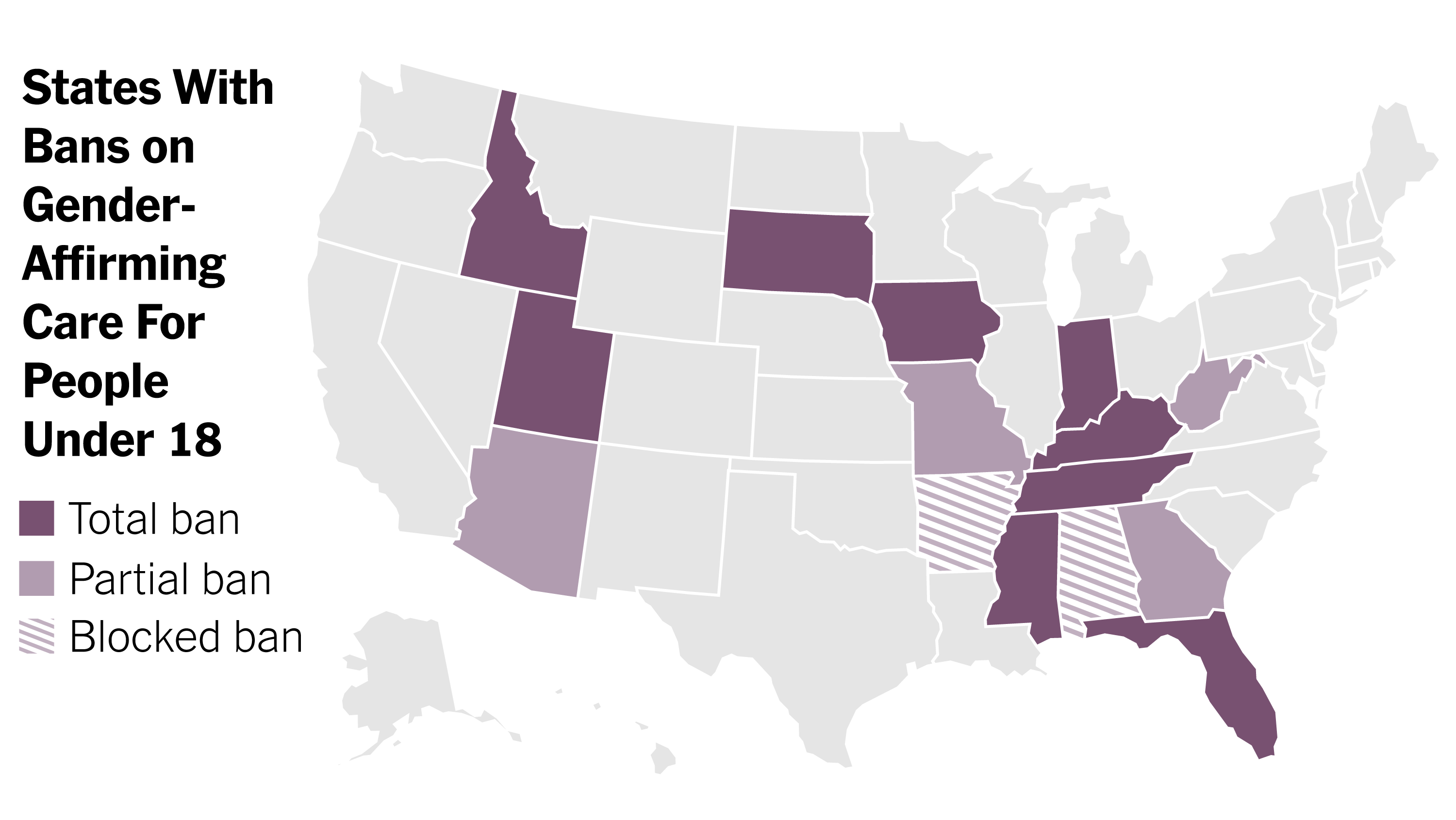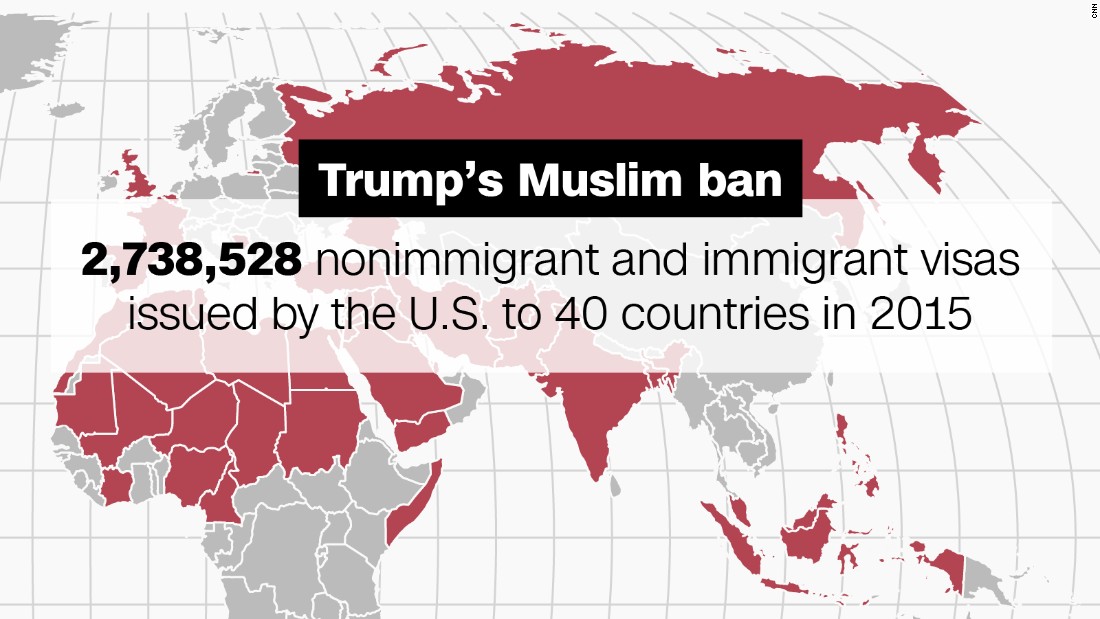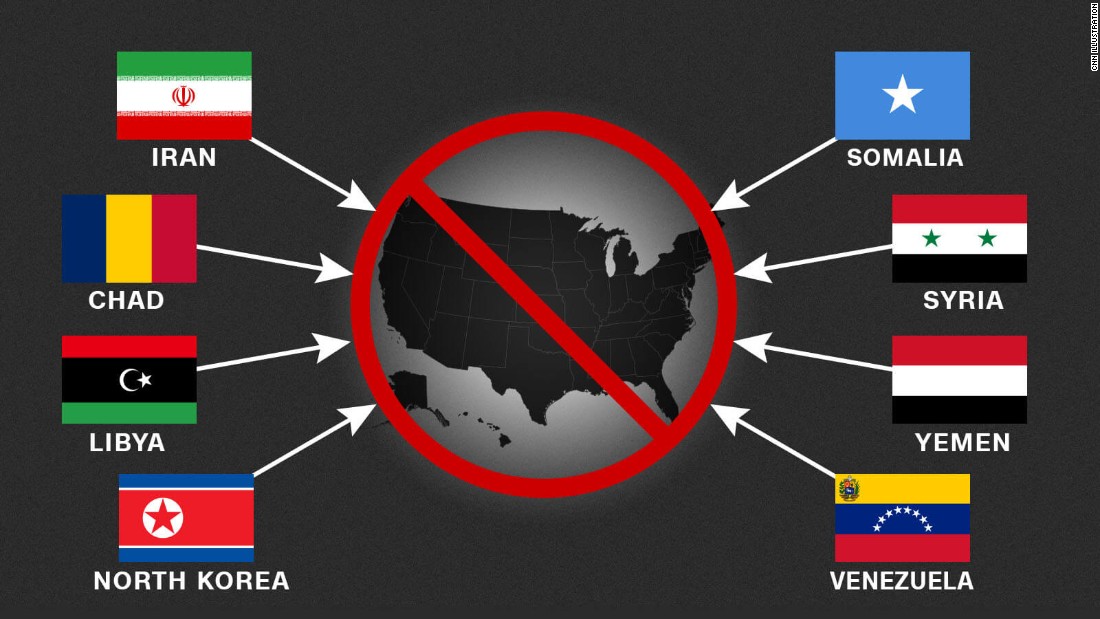What is the "search ban on trump"? Search engines like Google, Bing, and DuckDuckGo have been accused of "shadow banning" or "de-ranking" search results related to former US President Donald Trump. This means that searches for terms like "Donald Trump" or "Trump news" may not return as many results as they used to, or the results may be less favorable to Trump.
There is no consensus on whether or not search engines are actually shadow banning Trump. Some experts believe that the decline in search results for Trump-related terms is simply due to a decrease in interest in Trump since he left office. Others believe that search engines are deliberately suppressing Trump-related content in order to silence conservative voices.
The debate over shadow banning is a complex one, with no easy answers. However, it is important to be aware of the issue and to consider the potential implications for freedom of speech and access to information.
search ban on trump
The "search ban on trump" refers to the alleged practice by search engines of suppressing or de-ranking search results related to former US President Donald Trump. While there is no consensus on whether or not this practice is actually occurring, it has raised concerns about freedom of speech and access to information.
- Alleged bias: Search engines have been accused of suppressing conservative viewpoints, including those of Donald Trump.
- Political motivations: Some believe that the search ban on trump is politically motivated, aimed at silencing conservative voices.
- Lack of transparency: Search engines have not been transparent about their algorithms and how they rank search results.
- Freedom of speech concerns: The search ban on trump has raised concerns about the suppression of free speech and the right to access information.
- Potential impact on elections: Some fear that the search ban on trump could impact future elections by suppressing information about conservative candidates.
- Need for further research: More research is needed to determine the extent of the search ban on trump and its potential impact.
- Importance of a free and open internet: The search ban on trump highlights the importance of maintaining a free and open internet where all viewpoints can be expressed and accessed.
The search ban on trump is a complex issue with no easy answers. However, it is important to be aware of the allegations and to consider the potential implications for freedom of speech and access to information.
Alleged bias
The alleged bias of search engines against conservative viewpoints is a serious concern, and it is one of the key factors contributing to the "search ban on trump." Search engines have been accused of using algorithms that favor liberal content and suppressing conservative content, resulting in a situation where users are less likely to see conservative viewpoints in their search results.
This bias has been documented by a number of studies. For example, a study by the Media Research Center found that Google's search results for the term "climate change" were biased in favor of liberal viewpoints, while a study by the Pew Research Center found that YouTube's recommendations for videos were biased in favor of liberal content.
The alleged bias of search engines is a threat to freedom of speech and the free exchange of ideas. If search engines are suppressing conservative viewpoints, then users are not getting a full and accurate picture of the world. This can have a negative impact on democracy, as it makes it more difficult for people to make informed decisions about important issues.
There are a number of steps that can be taken to address the alleged bias of search engines. One step is to increase transparency about how search engines rank search results. Another step is to develop algorithms that are more neutral and less likely to suppress conservative viewpoints.
The search ban on trump is a complex issue, but the alleged bias of search engines is a key factor contributing to it. It is important to be aware of this bias and to take steps to address it.
Political motivations
The search ban on trump has been a controversial topic, with some believing that it is politically motivated and aimed at silencing conservative voices. This belief is based on a number of factors, including the following:
- The timing of the search ban: The search ban on trump began shortly after he took office, and it has continued ever since. This timing suggests that the ban may be politically motivated, as it coincides with a period of heightened political tension in the United States.
- The targets of the search ban: The search ban on trump has primarily targeted conservative websites and news outlets. This suggests that the ban is intended to suppress conservative viewpoints, rather than to simply improve the quality of search results.
- The lack of transparency: Search engines have been opaque about the algorithms they use to rank search results. This lack of transparency makes it difficult to determine whether or not the search ban on trump is politically motivated.
The search ban on trump is a serious issue that raises concerns about freedom of speech and the free exchange of ideas. If search engines are suppressing conservative viewpoints, then users are not getting a full and accurate picture of the world. This can have a negative impact on democracy, as it makes it more difficult for people to make informed decisions about important issues.
It is important to note that there is no consensus on whether or not the search ban on trump is politically motivated. However, the factors listed above suggest that it is a possibility that should be taken seriously.
Lack of transparency
The lack of transparency around search engine algorithms is a major concern, as it makes it difficult to determine whether or not the search ban on trump is politically motivated. Without transparency, it is impossible to know whether search engines are intentionally suppressing conservative viewpoints, or if the search ban on trump is simply the result of other factors, such as changes in user behavior or the way that news is produced and consumed online.
For example, a study by the Mozilla Foundation found that Google's search results for the term "climate change" were biased in favor of liberal viewpoints, while a study by the Pew Research Center found that YouTube's recommendations for videos were biased in favor of liberal content.
The lack of transparency around search engine algorithms is a serious problem that needs to be addressed. Search engines should be more transparent about how they rank search results, so that users can make informed decisions about the information they are consuming.
Freedom of speech concerns
The search ban on trump has raised serious concerns about the suppression of free speech and the right to access information. If search engines are suppressing conservative viewpoints, then users are not getting a full and accurate picture of the world. This can have a negative impact on democracy, as it makes it more difficult for people to make informed decisions about important issues.
The right to freedom of speech is enshrined in the First Amendment of the United States Constitution. This right includes the right to express unpopular or controversial viewpoints. Search engines play a major role in shaping public discourse, and they have a responsibility to ensure that all viewpoints are represented in their search results.
The search ban on trump is a threat to freedom of speech. It is important to be aware of this threat and to take steps to protect our right to free speech.
Potential impact on elections
The search ban on trump could have a significant impact on future elections by suppressing information about conservative candidates. This is because search engines play a major role in how people get their news and information. If search engines are suppressing conservative viewpoints, then users are less likely to see information about conservative candidates in their search results. This could lead to a decrease in support for conservative candidates and make it more difficult for them to win elections.
There is evidence to suggest that the search ban on trump is already having an impact on elections. For example, a study by the Media Research Center found that Google's search results for the term "climate change" were biased in favor of liberal viewpoints. This suggests that Google is suppressing conservative viewpoints in its search results, which could have a negative impact on conservative candidates in elections.
The search ban on trump is a serious threat to democracy. It is important to be aware of this threat and to take steps to protect our right to free speech and access to information.
Need for further research
The search ban on trump is a complex issue with far-reaching implications. More research is needed to determine the full extent of the ban and its potential impact on freedom of speech, access to information, and the democratic process.
- Defining the scope of the search ban: Research is needed to determine the extent of the search ban on trump. This includes identifying which search engines are implementing the ban, which terms and phrases are being suppressed, and how the ban is being enforced.
- Assessing the impact on free speech: Research is needed to assess the impact of the search ban on trump on free speech. This includes examining how the ban is affecting the visibility of conservative viewpoints in search results, and how it is impacting the ability of users to access a diverse range of information.
- Evaluating the impact on access to information: Research is needed to evaluate the impact of the search ban on trump on access to information. This includes examining how the ban is affecting the ability of users to find information about conservative candidates and issues, and how it is impacting the ability of users to make informed decisions about important issues.
- Analyzing the impact on the democratic process: Research is needed to analyze the impact of the search ban on trump on the democratic process. This includes examining how the ban is affecting the ability of conservative candidates to compete in elections, and how it is impacting the ability of voters to make informed choices about candidates and issues.
The search ban on trump is a serious issue that raises concerns about freedom of speech, access to information, and the democratic process. More research is needed to determine the full extent of the ban and its potential impact. This research will help us to better understand the issue and to develop strategies to address it.
Importance of a free and open internet
The search ban on trump highlights the importance of maintaining a free and open internet where all viewpoints can be expressed and accessed. When search engines suppress certain viewpoints, it creates an echo chamber where users are only exposed to information that confirms their existing beliefs. This can lead to a lack of critical thinking and a decrease in tolerance for dissenting opinions.
A free and open internet is essential for a healthy democracy. It allows citizens to access a diverse range of information and perspectives, which is necessary for making informed decisions about important issues. When the internet is censored or controlled, it can be used to silence dissent and suppress opposition. This can lead to a decline in freedom of speech and a decrease in accountability for those in power.
The search ban on trump is a reminder that the internet is not something that we can take for granted. It is a fragile ecosystem that needs to be protected from those who would seek to control it. We must all work to ensure that the internet remains a free and open space where all voices can be heard.
FAQs on "search ban on trump"
The "search ban on trump" refers to the alleged practice by search engines of suppressing or de-ranking search results related to former US President Donald Trump. While there is no consensus on whether or not this practice is actually occurring, it has raised concerns about freedom of speech and access to information.
Question 1: Is there evidence that search engines are suppressing search results related to Donald Trump?
There is some evidence to suggest that search engines may be suppressing search results related to Donald Trump. For example, a study by the Media Research Center found that Google's search results for the term "climate change" were biased in favor of liberal viewpoints, while a study by the Pew Research Center found that YouTube's recommendations for videos were biased in favor of liberal content.
Question 2: What are the potential implications of search engines suppressing search results related to Donald Trump?
The potential implications of search engines suppressing search results related to Donald Trump are significant. If search engines are suppressing conservative viewpoints, then users are not getting a full and accurate picture of the world. This can have a negative impact on democracy, as it makes it more difficult for people to make informed decisions about important issues.
The search ban on trump is a complex issue with no easy answers. However, it is important to be aware of the allegations and to consider the potential implications for freedom of speech and access to information.
Conclusion
The "search ban on trump" is a complex issue with no easy answers. However, it is important to be aware of the allegations and to consider the potential implications for freedom of speech and access to information.
If search engines are suppressing conservative viewpoints, then users are not getting a full and accurate picture of the world. This can have a negative impact on democracy, as it makes it more difficult for people to make informed decisions about important issues.
It is important to stay informed about this issue and to hold search engines accountable for their actions. We must all work to ensure that the internet remains a free and open space where all voices can be heard.
Article Recommendations



ncG1vNJzZmiclaK8b7HNnqmgoaOirrPAjaemaKqVobKiv8SsaGlno5qus6%2FHZpmapl2ku27A0a6kqWaYqbqt